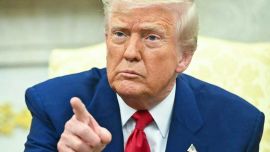Global central banks tapped a record amount of the Chinese currency in foreign-exchange swap lines in the first quarter, in another indication of the yuan’s growing international status.
The outstanding balance of all foreign currency swaps was 109 billion yuan (US$15.6 billion) at the end of March, according to data released by the People’s Bank of China on Monday. That was 20 billion yuan more than the level at the end of 2022, the second-biggest quarterly jump on record. The PBOC didn’t break down which nations had used the facility.
The jump came as more countries look to settle their trade with China in local currencies in an effort to reduce their reliance on the US dollar, and also as some nations look for help to overcome financial difficulties. Argentina announced in April that it would tap its swap line to finance imports from China after the peso suffered a sell-off. Brazil also agreed to start settling some trade in local currencies and took steps to make it easier to transact with China in yuan.
“It is possible that the PBOC is offering liquidity via the swap lines to support yuan internationalisation,” said Tommy Xie, Head of Greater China research at Overseas Chinese Banking Corp. Currency swap or cross border loans could be the few choices China’s trade partners have to accumulate yuan when they’re mostly running trade deficits with the country, he said.
While China’s strict controls on cross-border capital flows remain a major hurdle as the nation seeks to lift the yuan’s global status, US sanctions on Russia and other countries is helping promote the currency as an alternative for international transactions.
However not all countries are able to use their swap lines with the PBOC. Sri Lanka, for example, can’t draw on its US$1.5-billion swap agreement with China because there’s a condition related to the months of import cover that the country needs to meet, according to a former governor of the nation’s central bank.
Currency swaps are agreements where central banks simultaneously lend and borrow each others’ currencies at an initial date, with a promise to exchange the money back and pay an agreed interest rate.



















Comments